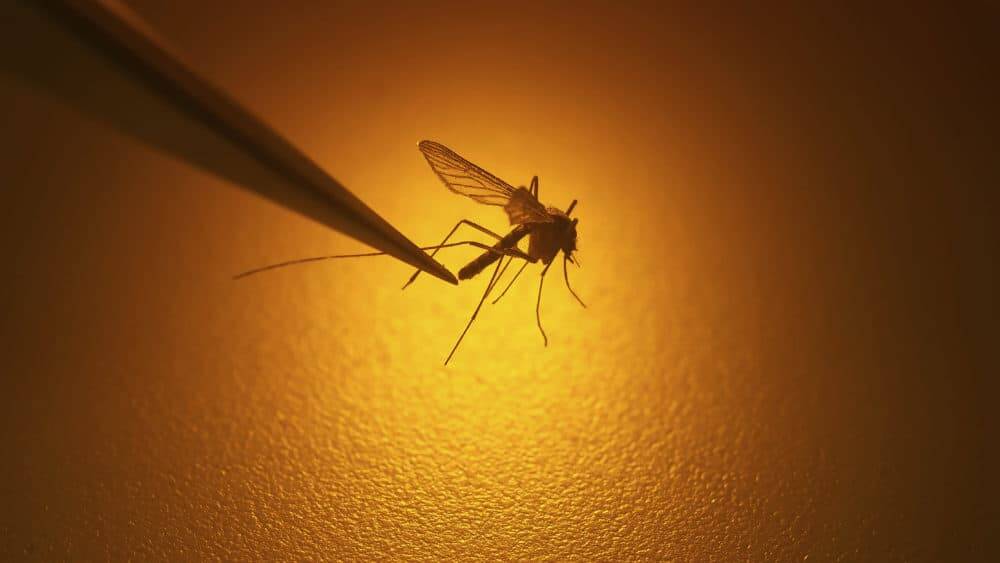Advertisement
2 human cases of West Nile virus detected in Mass. Here are tips on how to avoid bites

Two Massachusetts residents tested positive for the West Nile virus (WNV), according to the state Department of Public Health. These are first two human cases of the disease in Massachusetts this year.
One individual was exposed in Middlesex County and the other contracted the virus outside of the state, DPH said in a statement on Tuesday. The news came after the detection of the mosquito sample carrying the virus last month.
“August and September are the months when most people are exposed to West Nile virus in Massachusetts,” said DPH Commissioner Robert Goldstein in a statement. “Populations of mosquitoes that can carry and spread this virus are fairly large this year and we have seen recent increases in the number of WNV-positive mosquito samples from multiple parts of the Commonwealth.”
West Nile virus is usually transmitted to humans through the bite of an infected mosquito. There were eight human cases of the virus in Massachusetts last year.
While it can infect people of all ages, people over the age of 50 are at higher risk for severe disease. Most people infected with the virus will have no symptoms. When present, symptoms usually include fever and a flu-like illness. In rare cases, more severe illness can occur.
The DPH says there is a moderate risk of West Nile virus infection in humans in Greater Boston, along with Berkshire, Bristol, Hampden, Hampshire, Plymouth and Worcester counties.
State epidemiologist Catherine M. Brown said mosquitoes carrying the disease will persist for several more months. Below are a few steps she suggested residents can take to reduce potential exposure to the virus.
Quick Tips
Use the right mosquito repellent
Apply insect repellent when outdoors and use a repellent with an EPA-registered ingredient. Repellent products should not be used on infants under 2 months old and avoid using in concentrations of 30% or less on older children. Oil of lemon eucalyptus should not be used on children under age 3.
Be aware of peak mosquito hours
The hours from dusk to dawn are peak biting times for many mosquitoes. Consider rescheduling outdoor activities that occur during evening or early morning in areas of high risk.
Dress to avoid bites
Wearing long sleeves, long pants and socks when outdoors will help keep mosquitoes away from your skin.
Monitor the outside of your home
Monitor for and drain any standing water in items around your home, like unused flowerpots or wading pools. That's where mosquitoes often lay their eggs. If you have a birdbath, change the water frequently. Keep mosquitoes outside by installing tightly fitting screens on your windows and doors.
Protect your animals
Make sure you drain any containers or troughs your animals use on a regular basis. Water troughs provide especially excellent mosquito breeding habitats and should be flushed out at least once a week during the summer months to reduce mosquitoes. Horse owners should keep horses in indoor stalls at night to reduce their risk of exposure to mosquitoes. Talk to your vet about animal-approved mosquito repellents, and any vaccinations available to protect your pets or livestock.
